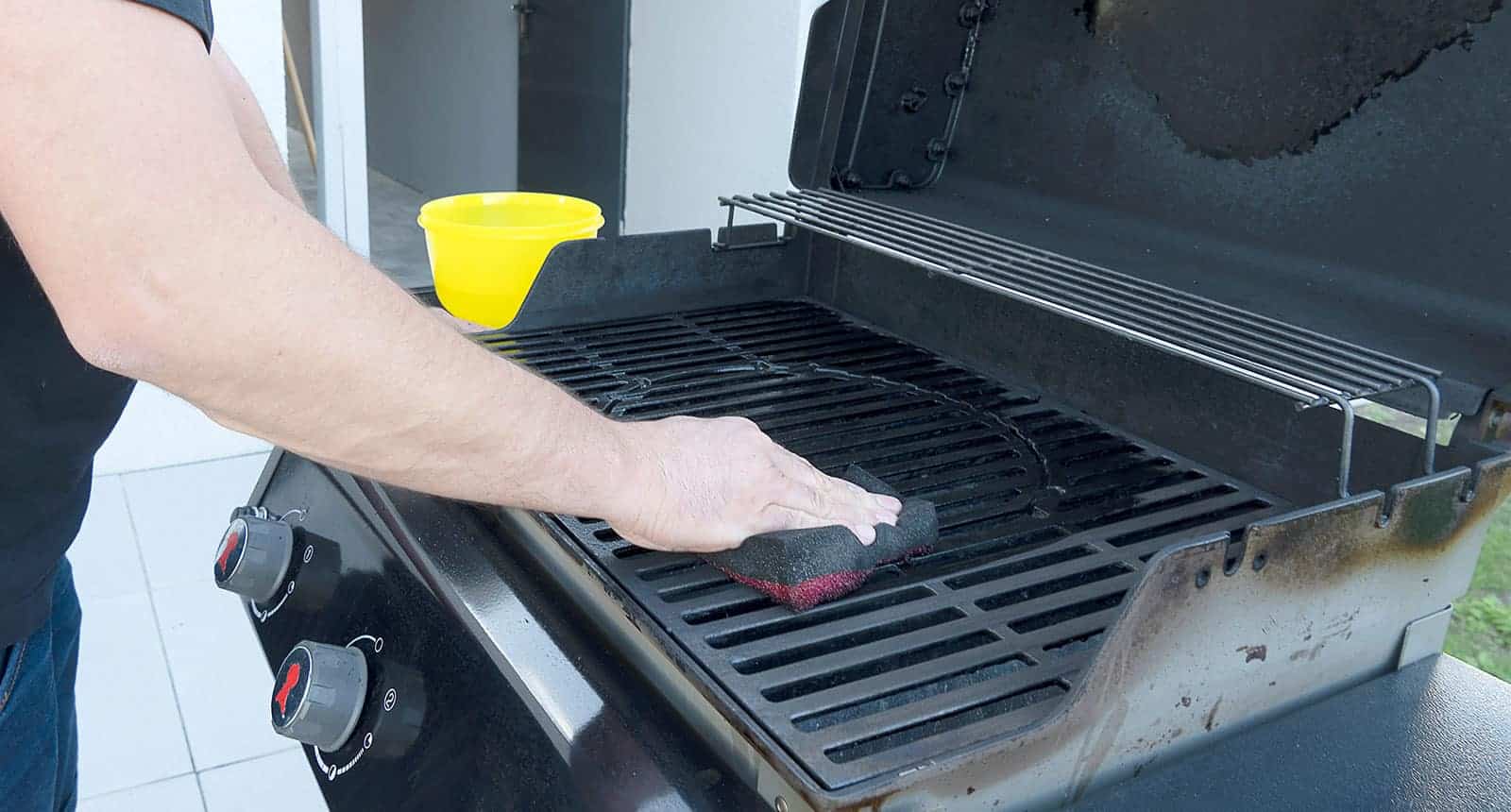

Articles
How To Clean Rust Off Grill Grates
Modified: August 28, 2024
Learn effective methods to clean rust off grill grates with these helpful articles. Keep your grill in top condition for tasty BBQ all season!
(Many of the links in this article redirect to a specific reviewed product. Your purchase of these products through affiliate links helps to generate commission for Storables.com, at no extra cost. Learn more)
Introduction
Welcome to our comprehensive guide on how to clean rust off grill grates. Over time, grill grates can develop rust, which not only affects the aesthetics of your grill but also poses potential health risks. Rust can contaminate your food and compromise the flavor and quality of your grilled dishes. However, with the right materials and techniques, you can easily restore your grill grates to their former glory.
In this article, we’ll walk you through the process of understanding rust on grill grates, the materials and tools you’ll need, safety precautions to take, and various methods for removing rust. We’ll also provide you with cleaning and maintenance tips to help prolong the lifespan of your grill grates. So, let’s get started!
Key Takeaways:
- Say goodbye to rust on your grill grates by using natural remedies like vinegar and baking soda, lemon juice and salt, or commercial rust removers. Follow safety precautions and maintain your grates for a rust-free grilling experience.
- Keep your grill grates rust-free with regular cleaning, oiling, and proper storage. Use natural remedies or commercial rust removers to effectively remove rust. Prioritize safety and enjoy delicious, rust-free grilled meals.
Read more: How To Clean Rust Off A Grill
Understanding Rust on Grill Grates
Rust is a common occurrence on grill grates, especially if they are exposed to moisture or left outdoors. The combination of oxygen and moisture can cause the metal to oxidize, resulting in the formation of rust. If left untreated, rust can eat away at the metal, eventually causing irreparable damage.
Aside from the visual unappealingness of rust, it can also impact the taste and safety of your grilled food. Consuming rust can be harmful to your health and may lead to gastrointestinal issues.
Materials and Tools Needed
Before you begin the rust removal process, gather the necessary materials and tools:
- Vinegar
- Baking soda
- Lemon juice
- Salt
- Commercial rust remover
- Wire brush or steel wool
- Power drill with brush attachment (optional)
- Protective gloves
- Bucket or large container
- Water
- Old cloth or towel
Safety Precautions
Before you start cleaning your grill grates, ensure that you take the necessary safety precautions:
- Wear protective gloves to protect your hands from chemicals and sharp surfaces.
- Work in a well-ventilated area to avoid inhaling fumes.
- Keep pets and children away from the cleaning area.
- Follow the instructions on commercial rust removers carefully and use them as directed.
- If using a power drill, ensure that you are familiar with its operation and take necessary safety measures.
Preparing the Grill Grates for Cleaning
Before you begin removing rust from your grill grates, it’s important to prepare them properly:
- Remove the grill grates from the grill and place them on a flat surface.
- Scrape off any excess debris or food particles using a wire brush or scraper.
- Fill a bucket or large container with warm water and add a few drops of dish soap. Rinse the grates thoroughly to remove any grease or residue.
- Dry the grates with an old cloth or towel.
Read more: How To Clean Grill Grates
Methods for Removing Rust
Now that you’ve prepared your grill grates, let’s explore various methods for removing rust:
Key Takeaways:
- Say goodbye to rust on your grill grates by using natural remedies like vinegar and baking soda, lemon juice and salt, or commercial rust removers. Follow safety precautions and maintain your grates for a rust-free grilling experience.
- Keep your grill grates rust-free with regular cleaning, oiling, and proper storage. Use natural remedies or commercial rust removers to effectively remove rust. Prioritize safety and enjoy delicious, rust-free grilled meals.
Read more: How To Clean Rust Off A Grill
Understanding Rust on Grill Grates
Rust is a common occurrence on grill grates, especially if they are exposed to moisture or left outdoors. The combination of oxygen and moisture can cause the metal to oxidize, resulting in the formation of rust. If left untreated, rust can eat away at the metal, eventually causing irreparable damage.
Aside from the visual unappealingness of rust, it can also impact the taste and safety of your grilled food. Consuming rust can be harmful to your health and may lead to gastrointestinal issues.
To better understand how rust forms on grill grates, let’s take a closer look at the process:
- Exposure to moisture: Moisture is one of the key factors that promote rust formation. Whether it’s rain, humidity, or food juices, when grill grates come into contact with moisture, it creates an environment conducive to rust development.
- Oxygen: Another essential element in the rusting process is oxygen. When metal interacts with oxygen, it undergoes a chemical reaction called oxidation. This reaction breaks down the metal and forms iron oxide, which we commonly know as rust.
- Heat and humidity: High temperatures and humidity can accelerate the rusting process. When we use our grills, heat can create condensation, leading to increased moisture on the grill grates. This combination of heat and humidity speeds up the oxidation process, leading to faster rust formation.
- Poor maintenance: Neglecting regular cleaning and maintenance can contribute to the development of rust. When grease, food particles, and other debris accumulate on the grill grates, they can hold moisture against the metal surface, increasing the likelihood of rust formation.
Understanding these factors will help you take preventive measures to minimize rust on your grill grates. Regular cleaning, proper storage, and avoiding excessive exposure to moisture can significantly reduce the chances of rust formation.
It’s important to note that not all grills are made of the same material. Some grates are made of cast iron, stainless steel, or even porcelain-coated steel. Each material has its own characteristics and may require specific cleaning methods to prevent rust.
By understanding the causes and risk factors associated with rust on grill grates, you can take proactive steps to maintain their longevity and ensure the safety of your food. Now, let’s move on to the next section, where we’ll discuss the materials and tools you’ll need for rust removal.
Materials and Tools Needed
Before you begin the process of removing rust from your grill grates, it’s important to gather the necessary materials and tools. Having everything on hand will ensure a smooth and efficient cleaning process. Here are the materials and tools you’ll need:
- Vinegar: Vinegar is a versatile household ingredient that can be used for various cleaning purposes, including removing rust. It’s an effective natural acid that helps dissolve rust and is safe to use on grill grates.
- Baking soda: Baking soda is another common household item that can help with rust removal. It acts as a gentle abrasive and can help scrub away rust when combined with other cleaning agents.
- Lemon juice: Lemon juice contains citric acid, which can aid in rust removal. It’s a natural and eco-friendly option that can help break down rust stains.
- Salt: Salt acts as an abrasive and can be used in conjunction with lemon juice or vinegar to form a paste for rust removal.
- Commercial rust remover: If the rust on your grill grates is stubborn and difficult to remove, you may need to use a commercial rust remover. These products are specifically designed to dissolve rust and are available at most hardware or home improvement stores.
- Wire brush or steel wool: A wire brush or steel wool is essential for physically scrubbing off rust. These tools are effective in removing stubborn rust and can reach into the crevices of the grill grates.
- Power drill with brush attachment (optional): If you have a power drill, you can use a brush attachment to help with the rust removal process. This method allows for faster and more efficient cleaning, particularly on larger surfaces.
- Protective gloves: It’s important to protect your hands while handling cleaning solutions, rust removers, and abrasive materials. Choose gloves that are resistant to chemicals and provide a good grip to ensure your safety.
- Bucket or large container: You’ll need a bucket or a large container to mix your cleaning solutions or soak the grill grates, depending on the method you choose.
- Water: Water is necessary for rinsing off the cleaning solutions and to clean the grates thoroughly.
- Old cloth or towel: Keep an old cloth or towel handy for drying the grill grates after cleaning.
Having all of these materials and tools readily available will make the process of removing rust from your grill grates much more convenient and efficient.
Now that we’ve covered the necessary materials and tools, in the next section, we’ll discuss important safety precautions to take before you begin cleaning your rusted grill grates.
Safety Precautions
Before you start the process of cleaning rust off your grill grates, it’s essential to prioritize safety. Proper precautions will help prevent accidents and ensure a smooth and risk-free cleaning experience. Here are some important safety precautions to keep in mind:
- Wear protective gloves: When handling cleaning solutions, rust removers, and abrasive materials, it’s crucial to protect your hands. Choose gloves that are resistant to chemicals and provide a good grip, ensuring your safety throughout the process.
- Work in a well-ventilated area: Some cleaning solutions and rust removers may produce fumes that can be hazardous if inhaled. To avoid potential respiratory issues, work in a well-ventilated area or open up windows and doors to allow fresh air circulation.
- Keep pets and children away: It’s important to create a safe environment by keeping pets and children away from the cleaning area. Cleaning solutions and rust removers may contain chemicals that can be harmful if ingested or come into contact with sensitive skin.
- Follow instructions on commercial rust removers: If you decide to use a commercial rust remover, make sure to carefully read and follow the instructions provided by the manufacturer. This will ensure that you use the product safely and effectively.
- Protective eyewear: To shield your eyes from any potential splashes or accidental contact with cleaning solutions or rust removers, consider wearing protective eyewear, such as safety goggles or glasses.
- Use caution with power tools: If you choose to utilize a power drill with a brush attachment, familiarize yourself with the operation of the tool before usage. Follow proper safety protocols, including wearing protective eyewear and gloves, and be mindful of the power cord to avoid any accidents.
- Proper disposal of cleaning solutions: After the cleaning process is complete, dispose of the cleaning solutions properly. Follow local regulations and guidelines for the safe disposal of chemical products to prevent environmental contamination.
Prioritizing safety while cleaning rust off your grill grates is essential for a successful and incident-free cleaning process. By taking these precautions, you can reduce the risk of accidents, protect yourself, and ensure a safe environment for those around you.
Now that you’re aware of the safety precautions, let’s move on to the next step – preparing your grill grates for cleaning.
Preparing the Grill Grates for Cleaning
Before you dive into the process of removing rust from your grill grates, it’s important to properly prepare them. This will ensure that you have a clean surface to work with and that any loose debris or residue is removed. Here are the steps to prepare your grill grates for cleaning:
- Remove the grill grates: Start by removing the grill grates from your grill. Carefully lift them out, taking note of their orientation for reassembly later.
- Scrape off excess debris: Using a wire brush or scraper, gently scrape off any excess debris or food particles from the grill grates. Pay close attention to areas where rust may have formed, as these are likely to have accumulated more debris.
- Prepare a cleaning solution: In a bucket or large container, fill it with warm water and add a few drops of dish soap. This will help break down grease and remove any residue on the grates.
- Rinse the grates: Place the grill grates in the cleaning solution and use a sponge or cloth to scrub them thoroughly. Ensure that every surface of the grates is cleaned, paying extra attention to areas affected by rust.
- Dry the grates: Once you have finished scrubbing the grates, rinse them thoroughly with clean water to remove any soap residue. Use an old cloth or towel to dry them completely. Moisture can exacerbate rust formation, so it’s important to ensure that the grates are completely dry before proceeding with rust removal.
Following these steps will help create a clean canvas for the rust removal process. By removing excess debris and cleaning the grates beforehand, you’ll have a better chance of effectively removing the rust.
Now that you’ve prepared your grill grates, it’s time to explore the different methods for removing rust. In the next section, we’ll walk you through various rust removal techniques using common household ingredients and commercial rust removers.
Read more: How To Clean Grill Grates
Methods for Removing Rust
When it comes to removing rust from grill grates, there are several methods you can choose from. Whether you prefer natural remedies or commercial rust removers, here are five effective methods to consider:
Method 1: Using Vinegar and Baking Soda
A combination of vinegar and baking soda can be an effective natural solution for rust removal. Here’s how to use this method:
- Prepare a mixture by combining equal parts vinegar and baking soda to form a paste.
- Apply the paste directly onto the rusted areas of the grill grates.
- Let the paste sit on the grates for about 30 minutes to allow the acidic properties of the vinegar to break down the rust.
- Scrub the grates using a wire brush or steel wool to remove the loosened rust.
- Rinse the grates with water and dry them thoroughly before using them again.
Method 2: Using Lemon Juice and Salt
Lemon juice combined with salt can also be an effective natural rust remover. Follow these steps to use this method:
- In a bowl, mix lemon juice and salt to create a paste. The salt acts as an abrasive while the citric acid in lemon juice helps dissolve the rust.
- Apply the paste onto the rusty areas of the grill grates.
- Allow the paste to sit on the grates for at least 30 minutes.
- Gently scrub the rusted areas using a wire brush or steel wool.
- Rinse the grates thoroughly with water and dry them completely.
Method 3: Using Commercial Rust Remover
If the rust on your grill grates is stubborn and not easily removed with natural remedies, a commercial rust remover can be a good option. Here’s how to utilize this method:
- Follow the instructions provided by the manufacturer of the commercial rust remover to ensure safe and effective usage.
- Apply the rust remover to the affected areas of the grill grates as directed.
- Allow the rust remover to sit on the grates for the recommended duration specified on the product label.
- Scrub the grates using a wire brush or steel wool to remove the rust.
- Rinse the grates thoroughly with water and dry them completely before reusing.
Method 4: Using a Wire Brush or Steel Wool
If the rust on your grill grates is minimal and not heavily built-up, a wire brush or steel wool can be sufficient for removing the rust. Here’s how to use this method:
- Use a wire brush or steel wool to vigorously scrub the rusted areas of the grill grates.
- Apply moderate pressure and scrub in back-and-forth or circular motions, focusing on the rusted spots.
- Continue scrubbing until you have removed the rust and the metal appears clean.
- Once you have removed the rust, rinse the grates with water and dry them thoroughly.
Method 5: Using a Power Drill with Brush Attachment
If you have a power drill with a brush attachment, you can expedite the rust removal process. Here’s how to use this method:
- Attach a brush specifically designed for rust removal to your power drill.
- Apply the brush to the rusted areas of the grill grates.
- Turn on the power drill and move the brush in back-and-forth or circular motions to remove the rust.
- Continue until you have removed the rust and the grates appear clean.
- Rinse the grates with water and dry them thoroughly.
Remember to follow the safety precautions mentioned earlier when using power tools and handling chemicals during the rust removal process.
These methods provide effective ways to remove rust from your grill grates. Choose the method that suits your preferences and the level of rust on your grates. In the next section, we’ll provide you with some cleaning and maintenance tips to help keep your grill grates rust-free in the long run.
Method 1: Using Vinegar and Baking Soda
One effective and natural method for removing rust from grill grates is by using vinegar and baking soda. The combination of these common household ingredients can help break down the rust and restore the shine to your grates. Here’s how to use this method:
- Prepare a mixture: In a bowl, combine equal parts vinegar and baking soda to create a paste. The vinegar acts as an acidic solution that helps dissolve rust, while the baking soda acts as a gentle abrasive to aid in scrubbing away the rust.
- Apply the paste: Using a brush or sponge, apply the vinegar and baking soda paste directly onto the rusted areas of the grill grates. Ensure that the paste is evenly distributed and covers all the rusted spots.
- Let it sit: Allow the paste to sit on the grates for about 30 minutes. This will give the vinegar and baking soda enough time to penetrate the rust and start breaking it down.
- Scrub the grates: After the paste has had time to work, take a wire brush or steel wool and scrub the rusted areas vigorously. Apply firm pressure and scrub in a back-and-forth motion to help dislodge and remove the rust. Continue scrubbing until the grates appear clean and the rust has been effectively removed.
- Rinse and dry: Once you have thoroughly scrubbed the grates, rinse them with water to remove any residue from the paste. Ensure that all traces of the vinegar and baking soda mixture have been washed away. Use a clean cloth or towel to dry the grates completely before reinstalling them onto the grill. Moisture left on the grates can lead to future rust formation.
- Final cleaning: To ensure that all residues and loose rust particles are removed, you can give the grates a final wipe down with a clean cloth or paper towel. This will leave your grill grates looking clean, fresh, and ready for the next grilling session.
Using vinegar and baking soda offers a natural and cost-effective way to remove rust from grill grates. It’s important to note that this method may require some elbow grease, especially if the rust is stubborn. However, with persistence and proper scrubbing, you can achieve rust-free grill grates.
Next, we’ll explore another natural method using lemon juice and salt to remove rust from grill grates.
Method 2: Using Lemon Juice and Salt
If you prefer a natural and citrus-based approach to remove rust from your grill grates, using lemon juice and salt can be an effective method. Lemon juice, with its acidic properties, helps break down rust, while salt acts as a gentle abrasive to facilitate the cleaning process. Follow these steps to use this method:
- Mix lemon juice and salt: In a bowl, combine lemon juice and salt to form a paste. There is no precise measurement, but aim for a mixture that is thick enough to adhere to the grates.
- Apply the paste: Using a brush or sponge, apply the lemon juice and salt paste onto the rusted areas of the grill grates. Ensure that the paste covers the entire rusty surface evenly.
- Let it sit: Allow the lemon juice and salt paste to sit on the grates for approximately 30 minutes. This gives the acidic lemon juice time to break down the rust, while the salt helps in scrubbing away the rusted particles.
- Scrub the grates: After the paste has had time to work, take a wire brush or steel wool and vigorously scrub the rusted areas. Apply firm pressure and scrub in a back-and-forth motion to dislodge and remove the rust. Continue scrubbing until the grates appear clean and the rust has been effectively eliminated.
- Rinse and dry: After scrubbing, rinse the grates with water to remove any residue or leftover paste. Make sure all traces of the lemon juice and salt mixture have been washed away. Use a clean cloth or towel to completely dry the grates before reassembling them onto the grill.
- Final cleaning: Give the grates a final wipe down with a clean cloth or paper towel to ensure that there are no loose rust particles or residues left. This extra step will help leave your grill grates looking clean and ready for your next grilling session.
Using lemon juice and salt is an eco-friendly and natural method to remove rust from grill grates. It may require some effort, especially for more stubborn rust, but with consistent scrubbing, you can restore your grates to their original condition.
Now that you’ve learned about removing rust using vinegar and baking soda, as well as lemon juice and salt, it’s time to explore another method using commercial rust removers. Stay tuned!
Read more: How To Clean Rust Off Patio Furniture
Method 3: Using Commercial Rust Remover
If the rust on your grill grates is stubborn and not easily removed by natural remedies, using a commercial rust remover can be an effective solution. These products are specifically designed to dissolve rust and are readily available at most hardware or home improvement stores. Follow these steps to use a commercial rust remover:
- Read the instructions: Before using a commercial rust remover, carefully read and follow the instructions provided by the manufacturer. Each product may have specific directions for usage and safety precautions, so make sure to adhere to them.
- Prepare the area: Ensure that you are working in a well-ventilated area. Open windows or work outside to avoid inhaling fumes. Keep pets and children away from the cleaning area to prevent accidental exposure to the rust remover.
- Apply the rust remover: Using a brush or sponge, apply the commercial rust remover directly to the rusted areas of the grill grates as directed. Make sure to cover the entire surface evenly with the rust remover solution.
- Allow it to work: Follow the recommended duration specified on the product label. Let the rust remover sit on the grates for the designated time to allow it to penetrate the rust and dissolve it effectively.
- Scrub the grates: After the designated time has elapsed, use a wire brush or steel wool to scrub the rusted areas. Apply moderate pressure and scrub in a back-and-forth motion to remove the loosened rust. Continue scrubbing until the grates appear clean and free of rust.
- Rinse and dry: Thoroughly rinse the grates with water to remove any residue from the rust remover. Ensure that all traces of the product have been washed away. Use a clean cloth or towel to completely dry the grates before reinstalling them onto the grill.
Commercial rust removers are formulated to be effective in tackling stubborn rust. However, it’s essential to follow the manufacturer’s instructions and take necessary safety precautions, such as wearing protective gloves and working in a well-ventilated area.
By utilizing a commercial rust remover, you can efficiently and effectively remove rust from your grill grates, restoring them to their original condition. With the rust removed, you’ll be able to enjoy grilling your favorite foods without any concerns about rust contamination.
Now that you’re familiar with using commercial rust removers, let’s explore another method using wire brushes or steel wool to remove rust from your grill grates. Stay tuned!
Method 4: Using a Wire Brush or Steel Wool
If the rust on your grill grates is minimal or not heavily built-up, using a wire brush or steel wool can be an effective method for rust removal. These tools provide physical abrasion, allowing you to scrub away the rust and restore the cleanliness of your grates. Follow these steps to use a wire brush or steel wool:
- Ensure safety: Before starting, ensure you are wearing protective gloves to protect your hands from any sharp edges or debris.
- Begin scrubbing: Using a wire brush or steel wool, vigorously scrub the rusted areas of the grill grates. Apply moderate pressure and scrub in a back-and-forth motion to dislodge and remove the rust. Focus on the areas where rust is most concentrated.
- Continue scrubbing: Keep scrubbing until you have removed the rust and the grates appear clean. Depending on the severity of the rust, you may need to spend more time on particularly stubborn areas.
- Rinse and dry: Once you have thoroughly scrubbed the grates, rinse them with water to remove any loose rust particles or debris. Make sure to rinse all areas, ensuring that no residual rust is left on the grates. Use a clean cloth or towel to completely dry the grates before reinstalling them onto the grill.
Using a wire brush or steel wool is a relatively simple and effective method for removing surface rust from grill grates. This method works best for minor rusting or as a maintenance step to prevent rust from spreading. It is important to regularly inspect your grill grates to catch any rust early and address it promptly.
Remember to exercise caution while using wire brushes or steel wool, as they can be abrasive and cause scratches on certain grill grate materials. Take care not to damage the coating or surface of the grates while scrubbing.
Now that you’ve learned how to remove rust using wire brushes or steel wool, let’s move on to the next method, which involves utilizing a power drill with a brush attachment. Stay tuned!
Method 5: Using a Power Drill with Brush Attachment
If you’re looking for a more efficient and powerful method to remove rust from your grill grates, using a power drill with a brush attachment can be highly effective. This method allows for faster and more thorough cleaning, particularly on larger surfaces or for tougher rust stains. Here’s how you can use a power drill with a brush attachment:
- Choose the right brush attachment: Select a brush attachment specifically designed for rust removal. There are various options available, such as wire brushes or abrasive pads, that can effectively remove rust from the grill grates.
- Attach the brush: Insert the chosen brush attachment into your power drill. Make sure it is securely fastened and well-balanced to ensure safe and effective operation.
- Ensure safety: Put on protective safety gear, including gloves and safety goggles, to protect yourself from any debris or fumes that may be generated during the cleaning process.
- Power up the drill: Turn on the power drill and adjust the speed according to the level of rust and the type of grill grate material. Start with a lower speed setting and gradually increase if necessary.
- Scrub the grates: With the power drill and brush attachment ready, position the brush against the rusty areas of the grill grates. Gently apply pressure and move the brush back and forth or in a circular motion to effectively remove the rust. Be careful not to press too hard or damage the grill grate surface.
- Inspect and repeat if necessary: Check the progress as you go and continue scrubbing until all the rust has been removed. Pay close attention to any stubborn rust spots and give them extra attention, taking care not to overwork the area.
- Rinse and dry: Once the rust has been successfully removed, rinse the grates thoroughly with water to remove any residual rust particles. Dry the grates completely before reassembling them onto the grill to prevent the formation of new rust.
Using a power drill with a brush attachment can greatly speed up the rust removal process, especially when dealing with larger grill grates or more stubborn rust stains. It’s important to be mindful of safety precautions and use the appropriate speed and pressure to prevent damaging the grates.
Now that you’ve learned about the different methods for removing rust from grill grates, you have a range of options to choose from based on your specific needs and preferences. In the next section, we’ll provide some essential cleaning and maintenance tips to help keep your grill grates rust-free in the long run.
Cleaning and Maintenance Tips
Once you’ve successfully removed rust from your grill grates, it’s important to establish a regular cleaning and maintenance routine to prevent rust from returning and maintain the longevity of your grates. Here are some essential tips to keep your grill grates clean and rust-free:
- Regular cleaning: Make it a habit to clean your grill grates after each use. Scrub them with a wire brush or grill brush while they are still warm to remove any food residue and prevent it from sticking and causing rust.
- Oil the grates: After cleaning, lightly coat the grill grates with cooking oil or a high-heat cooking spray. This will help create a protective barrier against moisture and prevent rust formation. It’s important to do this when the grates are still warm to allow the oil to penetrate the metal.
- Store the grates in a dry place: If you’re not using your grill for an extended period, it’s essential to store the grates in a dry place to minimize moisture exposure. Consider covering them with a grill cover or storing them indoors to provide an extra layer of protection.
- Inspect for rust regularly: Routinely inspect your grill grates for any signs of rust. Catching rust early allows for easier removal and prevents it from spreading and causing further damage. Address any small rust spots promptly to maintain the overall condition of the grates.
- Avoid harsh cleaning agents: When cleaning your grill grates, avoid using harsh cleaning agents or abrasive cleaners that can damage the surface. Stick to mild dish soap, vinegar, or lemon juice solutions, as they are effective yet gentle on the grates.
- Protect against the elements: If your grill is kept outdoors, invest in a high-quality grill cover to protect it from rain, snow, and other elements that can cause rust. Ensure the cover is properly fitted and securely fastened to minimize moisture exposure.
- Season the grates: Seasoning your grill grates periodically can help create a non-stick surface and prevent rust. To do this, heat your grill with the grates in place and coat them with a thin layer of cooking oil. Allow the grates to heat for a few minutes, then turn off the grill and let them cool. This process helps create a protective layer on the grates.
- Use a drip pan: Placing a drip pan beneath the grill grates can help catch grease and food drippings, preventing them from accumulating on the grates and potentially causing rust.
By following these cleaning and maintenance tips, you can keep your grill grates in excellent condition and minimize the risk of rust formation. Regular care and attention will ensure that you can enjoy delicious and rust-free grilled meals for years to come.
With the methods and tips provided in this guide, you now have the knowledge and tools to effectively remove rust from your grill grates and keep them well-maintained. Remember, a little effort in cleaning and prevention goes a long way in preserving the lifespan of your grill grates and enhancing your grilling experience.
Happy grilling!
Read more: How To Clean Cooktop Grates
Conclusion
Cleaning rust off your grill grates is an essential task to ensure that you enjoy safe and delicious grilled meals. Rust not only affects the aesthetics of your grill but also poses potential health risks if consumed. By following the methods and tips provided in this guide, you can effectively remove rust and maintain the longevity of your grill grates.
We covered several methods for rust removal, including using vinegar and baking soda, lemon juice and salt, commercial rust removers, wire brushes or steel wool, and power drills with brush attachments. Each method offers its own advantages and can be chosen based on the severity of the rust and personal preferences.
Furthermore, we emphasized the importance of safety precautions, such as wearing protective gloves, working in a well-ventilated area, and following the instructions on commercial rust removers. Prioritizing safety ensures that you have a risk-free cleaning experience.
Additionally, we provided valuable tips for maintaining your grill grates, such as regular cleaning, oiling, proper storage, and seasoning. By incorporating these practices into your routine, you can prevent rust from returning and extend the lifespan of your grates.
Remember, taking proactive measures to prevent rust formation is key. Regular inspections, promptly addressing any rust spots, and using grill covers are essential in maintaining rust-free grill grates. The more proactive you are, the easier it will be to keep your grates in pristine condition.
With the knowledge and techniques shared in this guide, you have the tools to restore your grill grates to their former glory and keep them rust-free. So, gear up, prepare your cleaning materials, and get ready for many more enjoyable grilling sessions without the worry of rust affecting your culinary creations.
Happy grilling and may your meals be delicious and rust-free!
Frequently Asked Questions about How To Clean Rust Off Grill Grates
Was this page helpful?
At Storables.com, we guarantee accurate and reliable information. Our content, validated by Expert Board Contributors, is crafted following stringent Editorial Policies. We're committed to providing you with well-researched, expert-backed insights for all your informational needs.
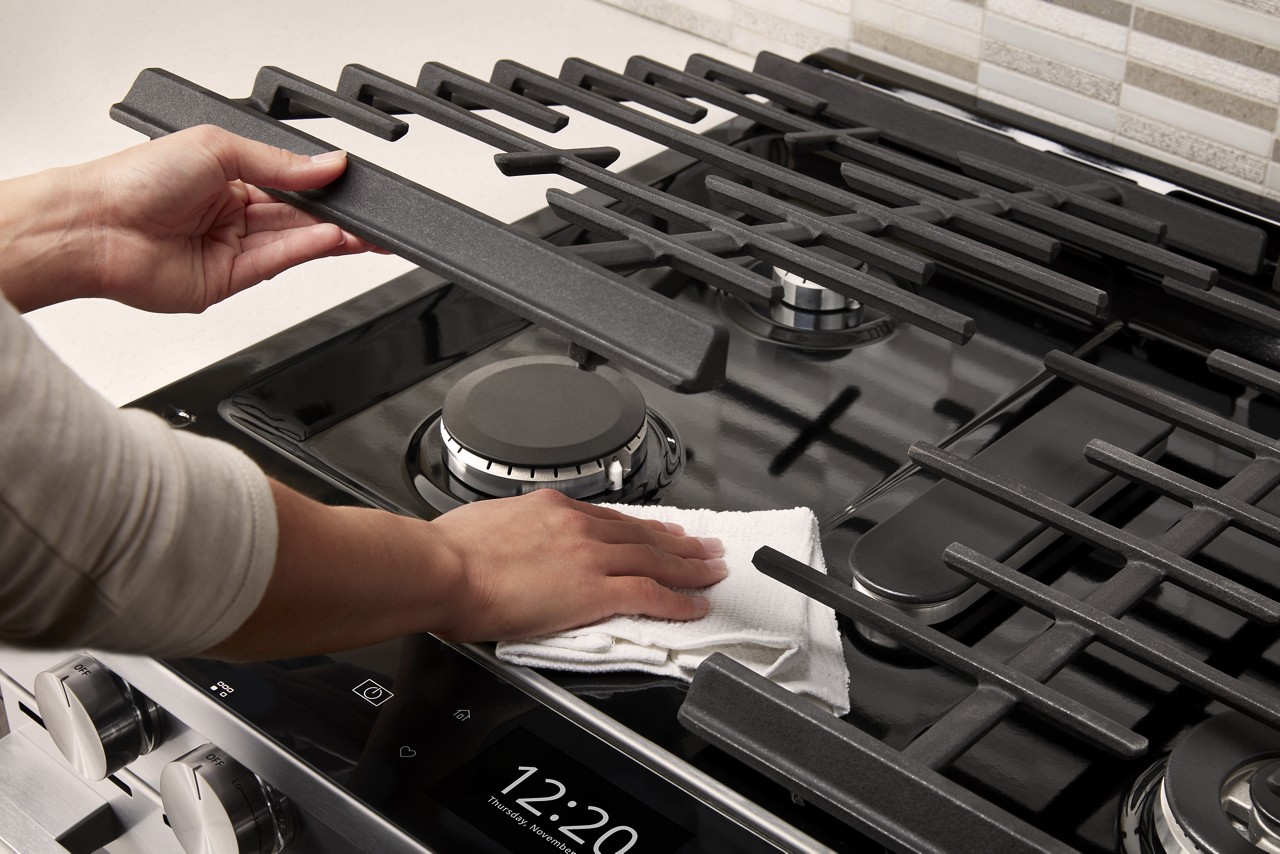
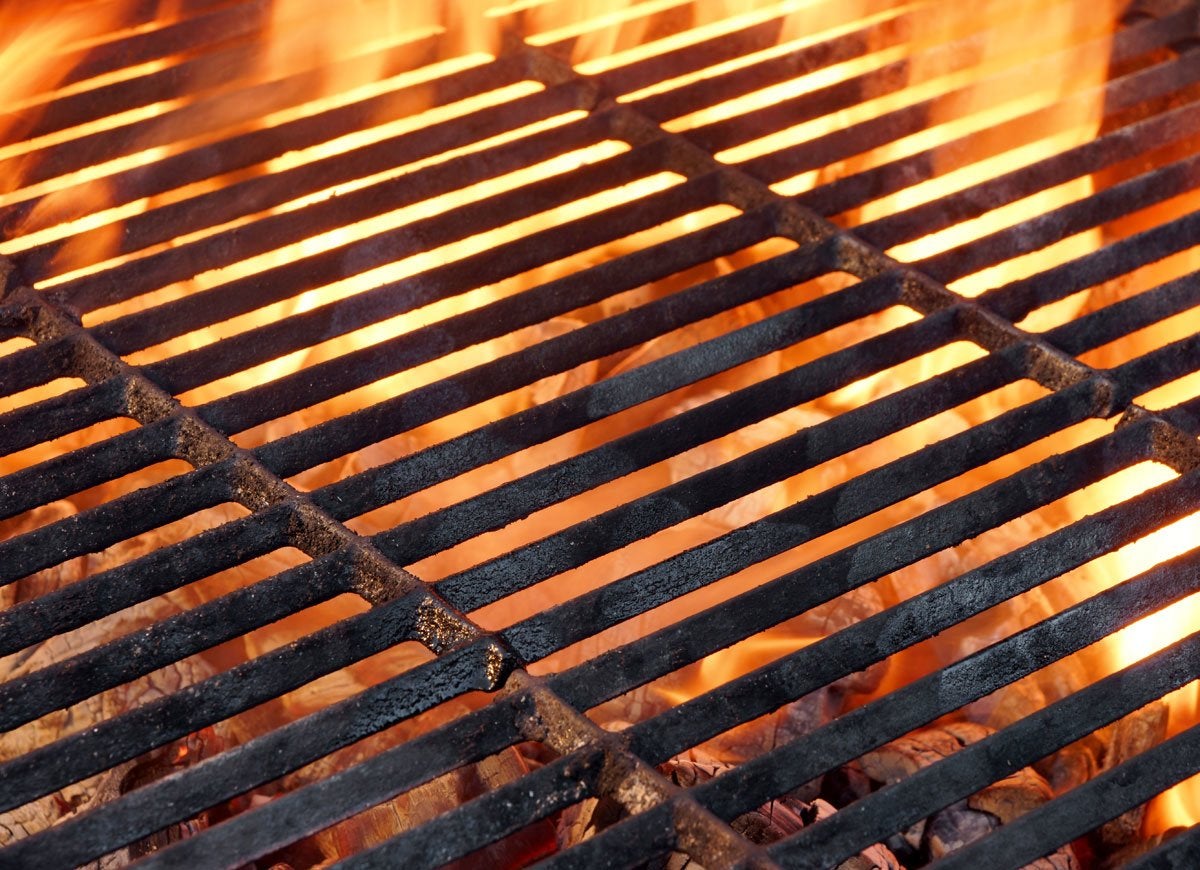
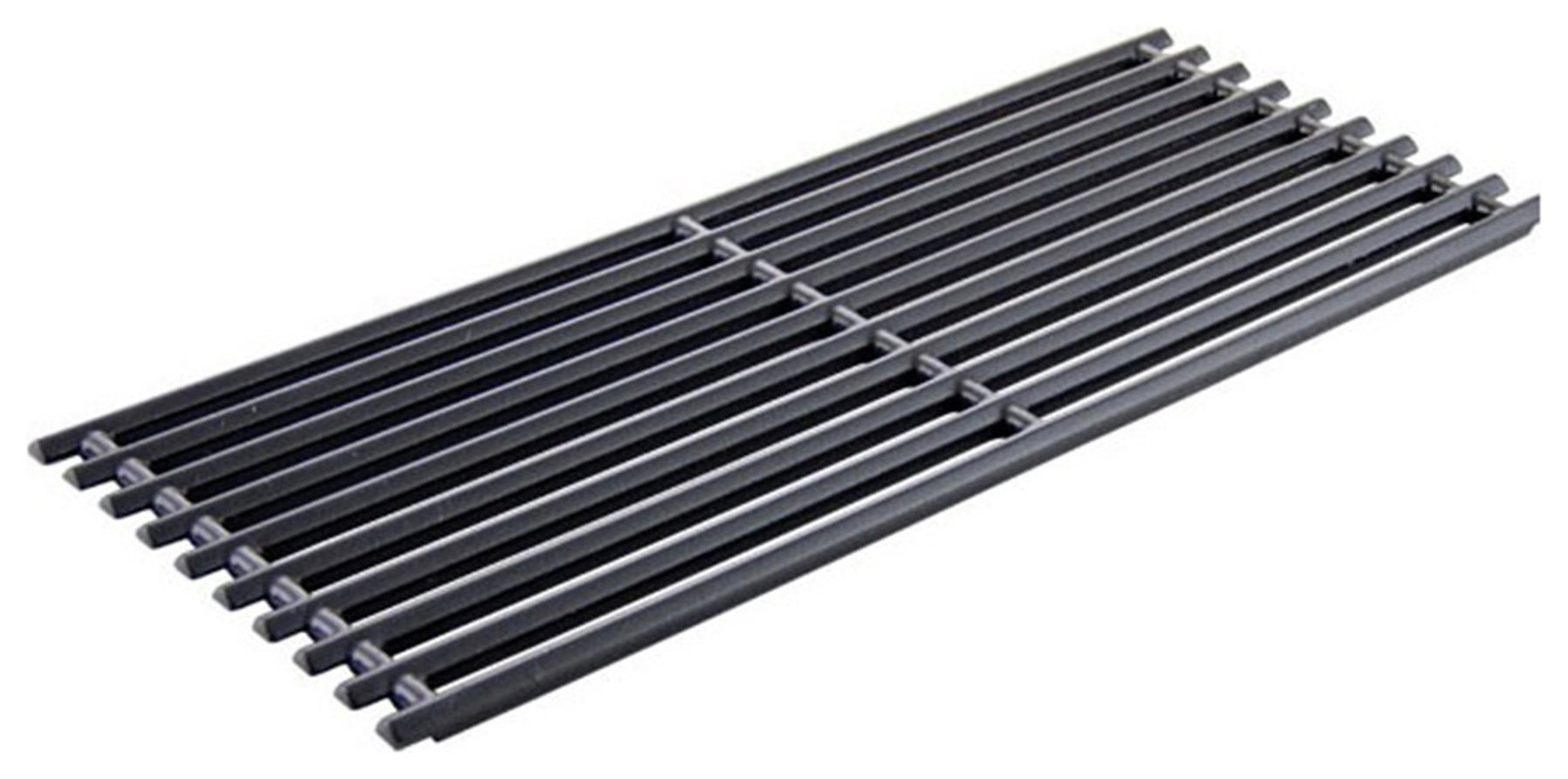
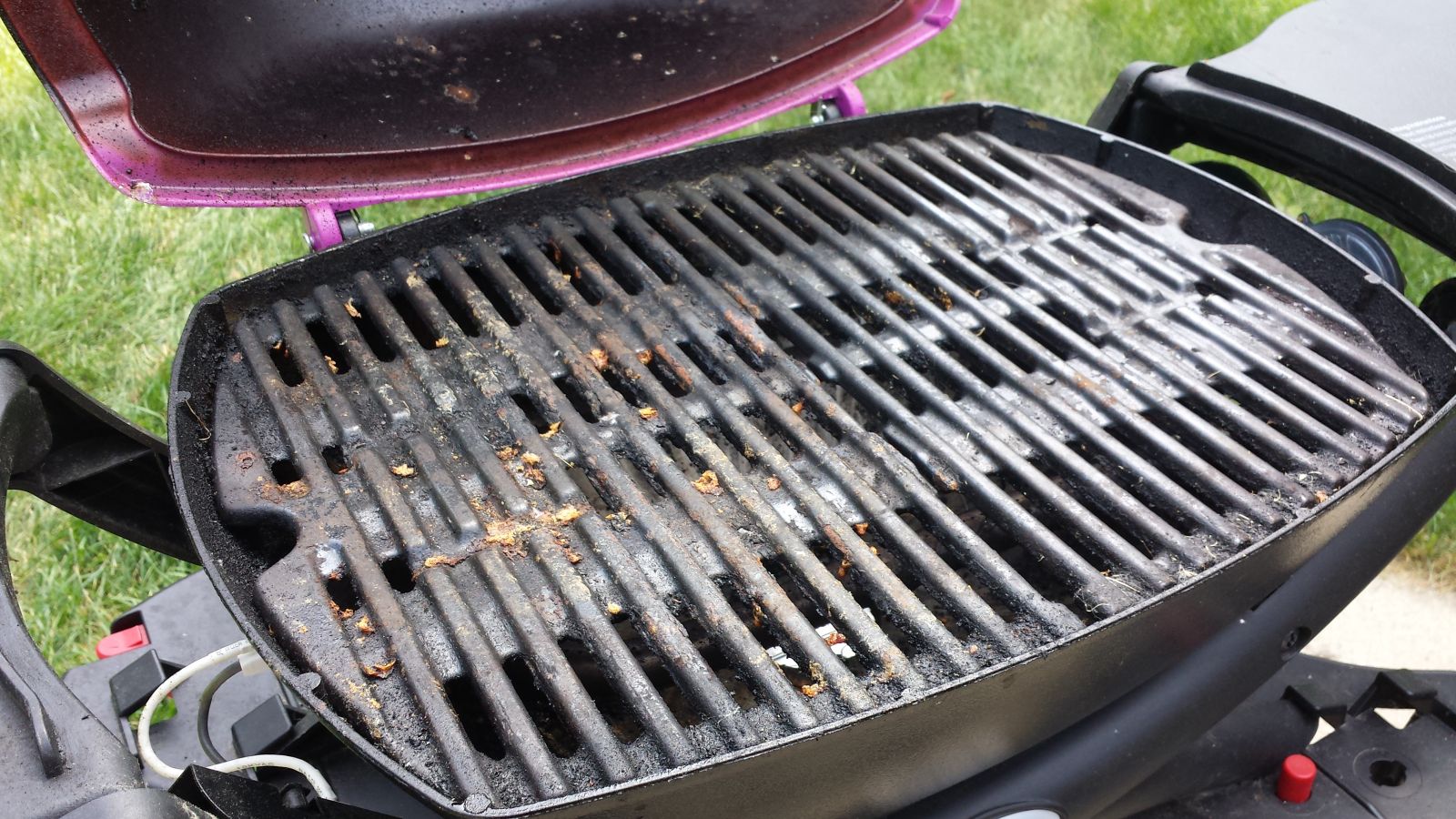
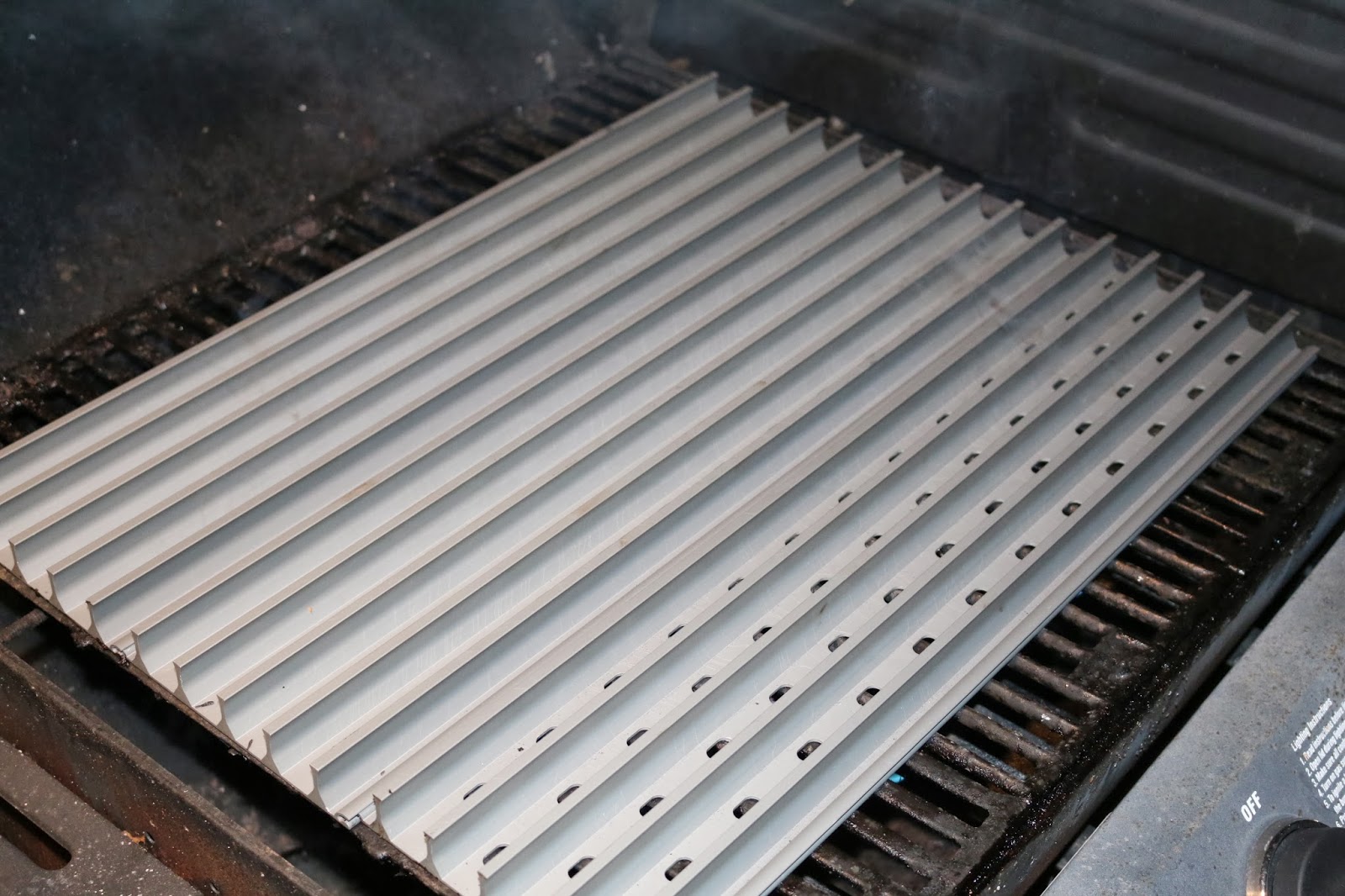
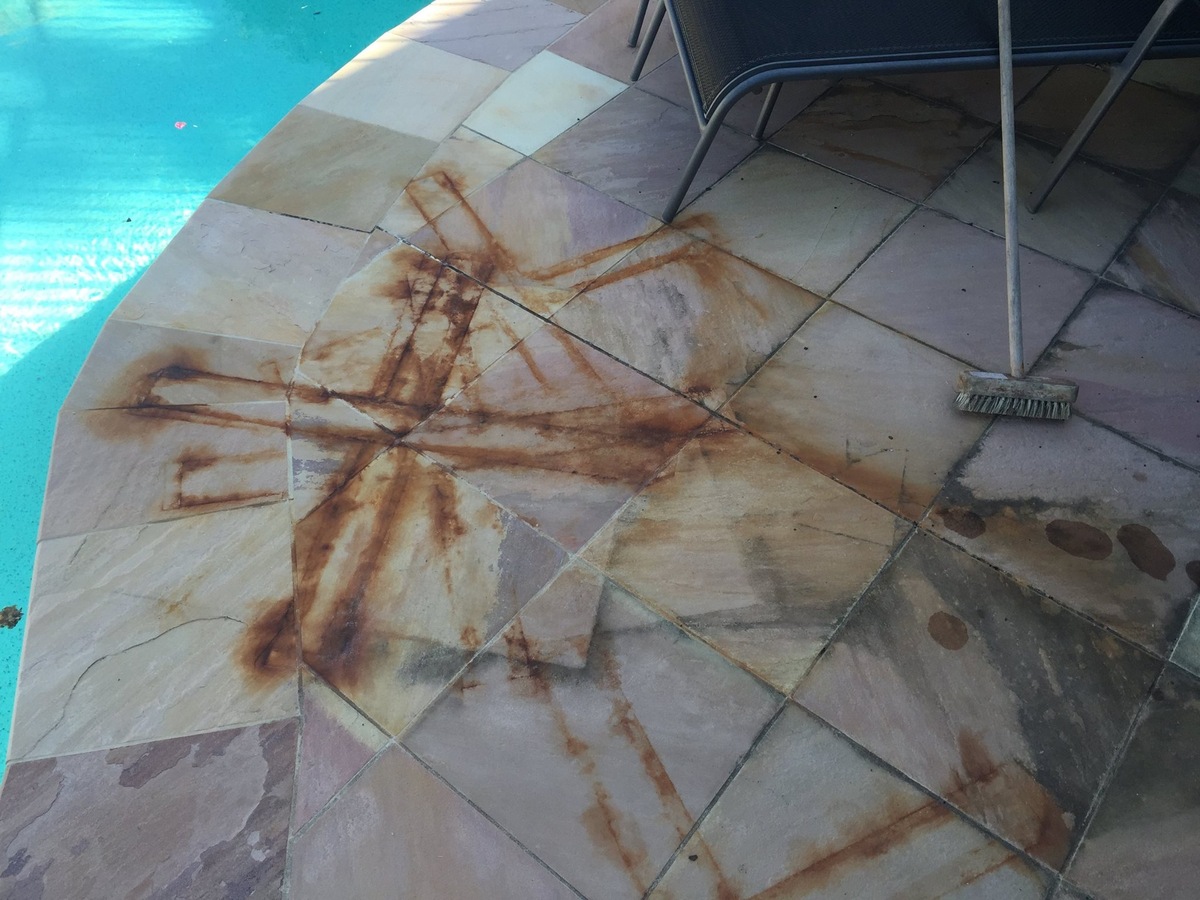
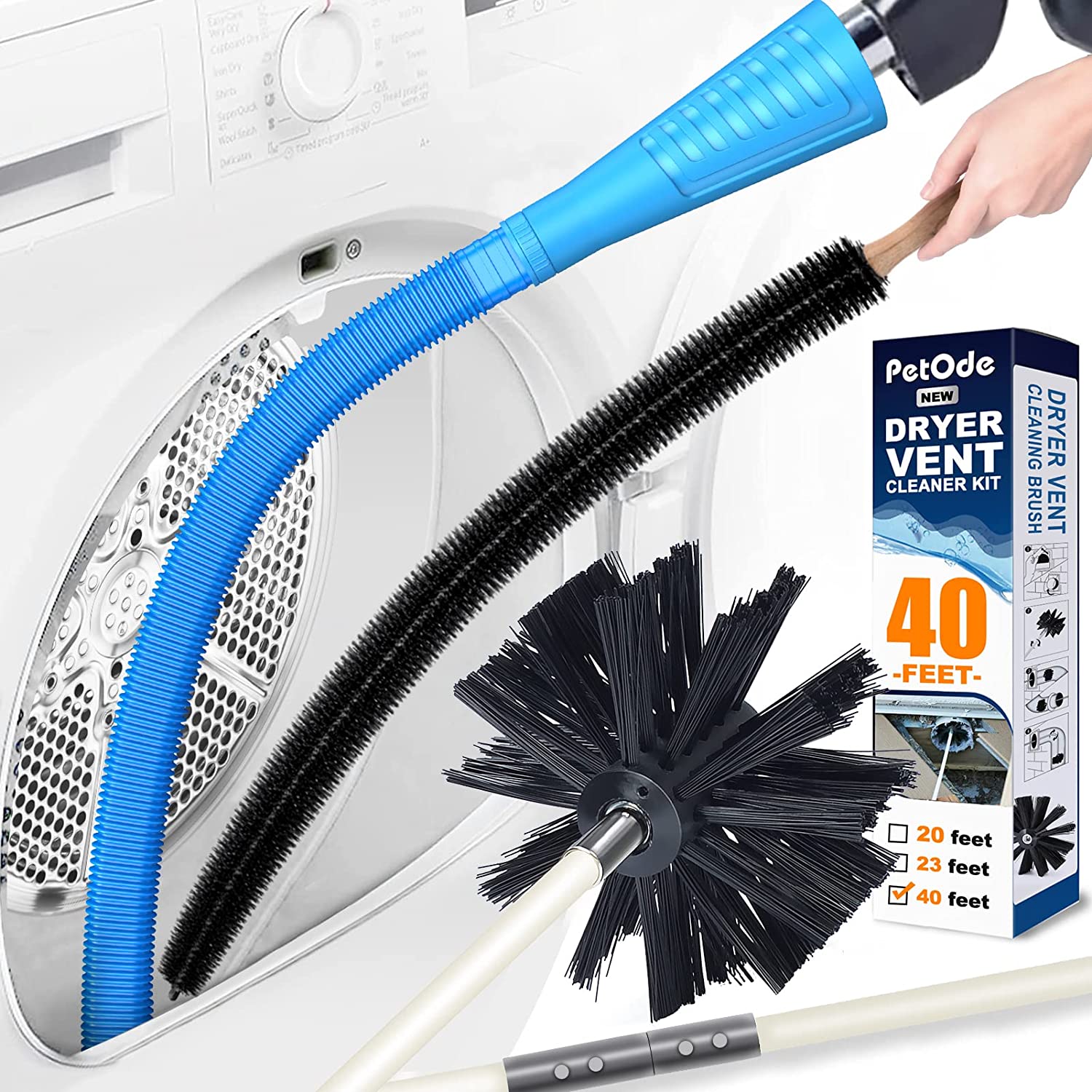
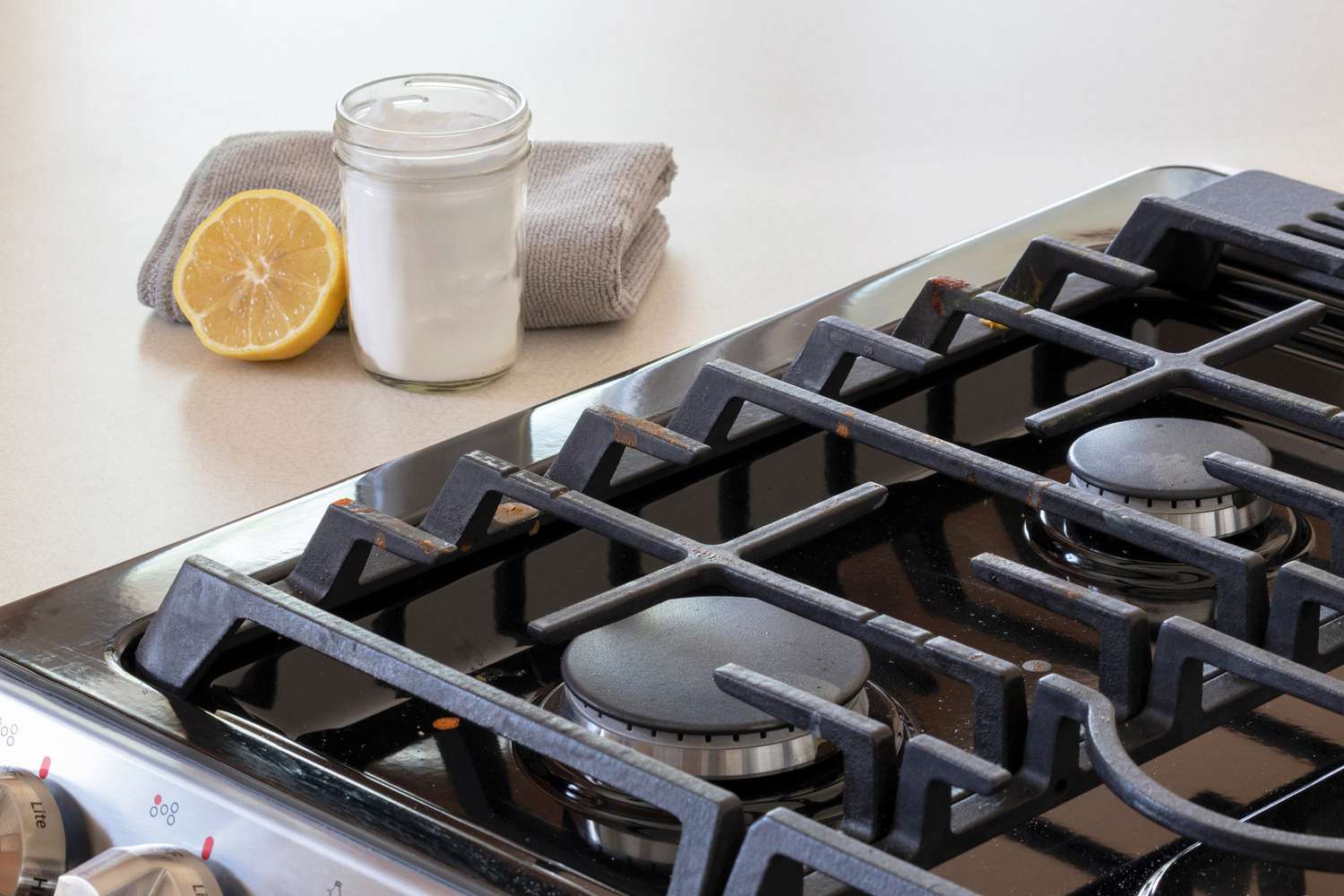
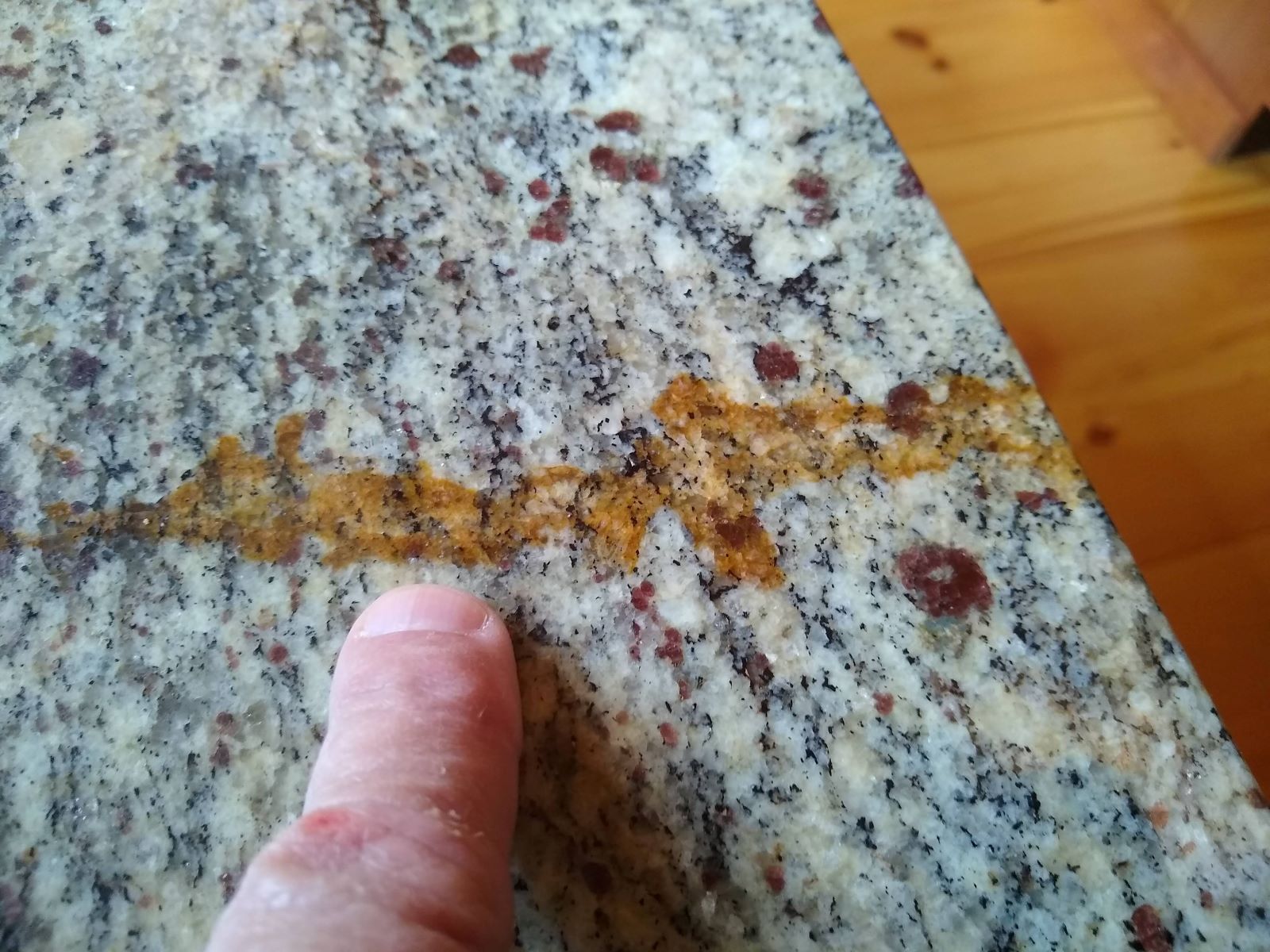
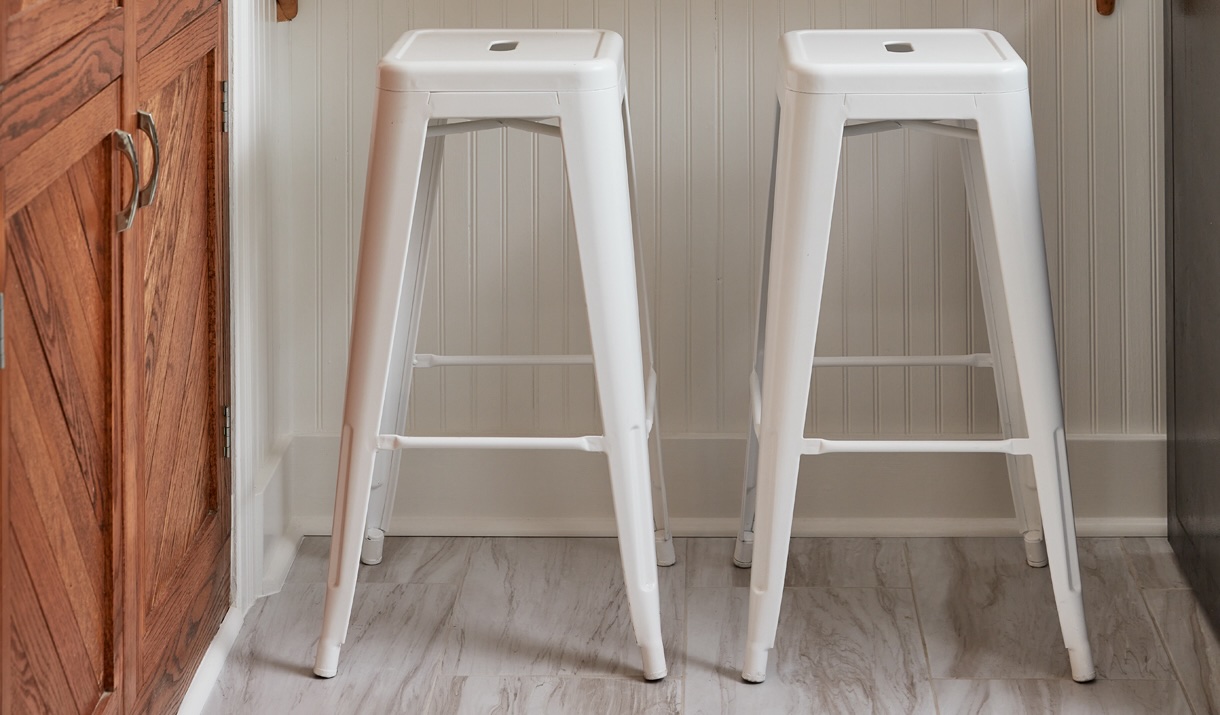
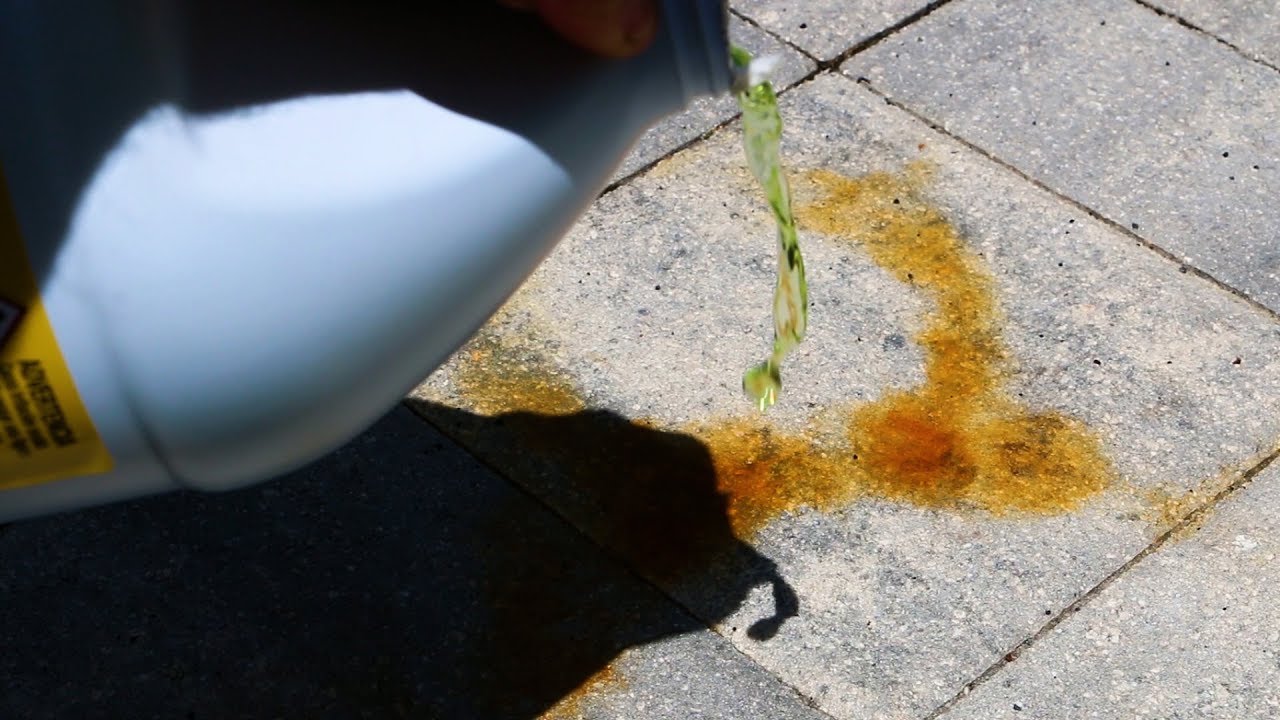

0 thoughts on “How To Clean Rust Off Grill Grates”